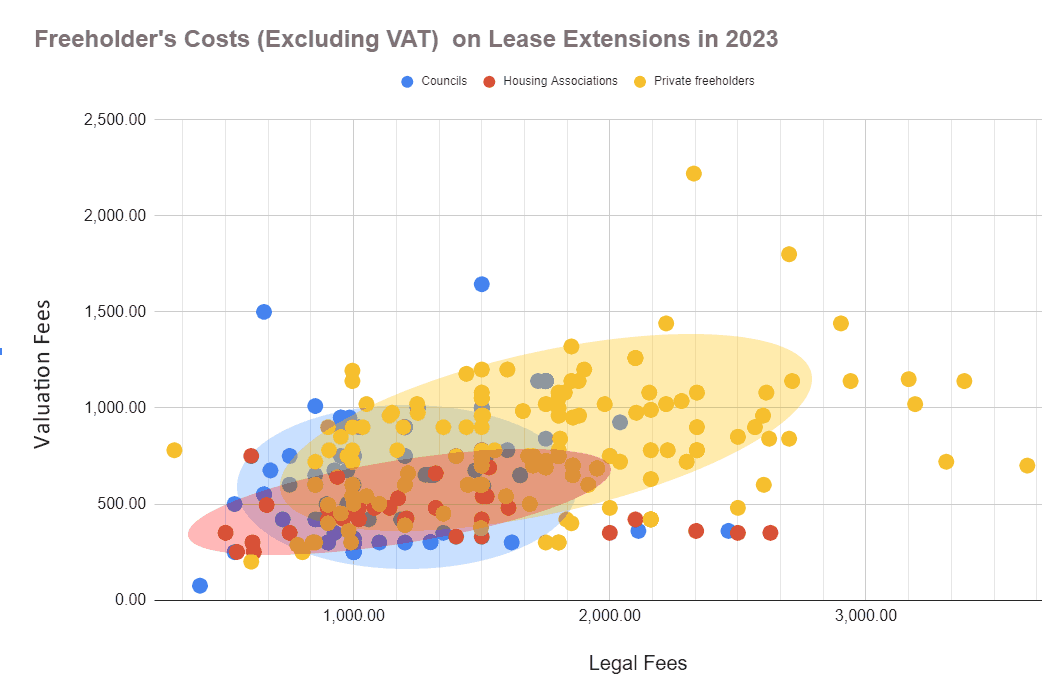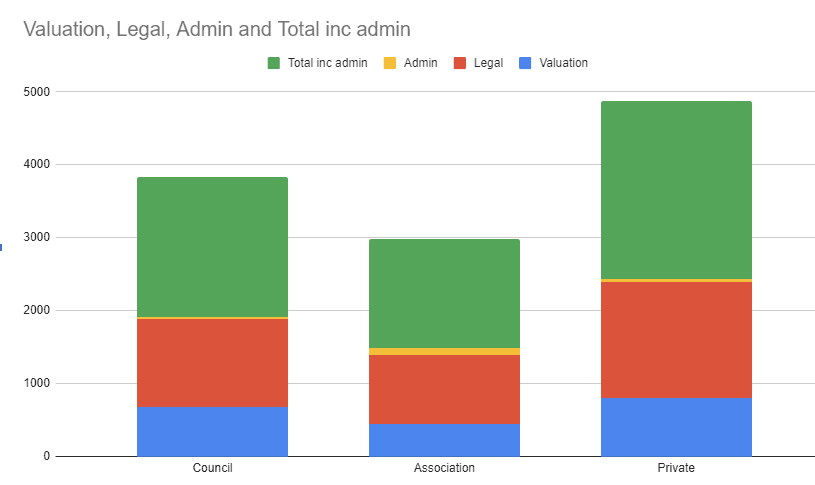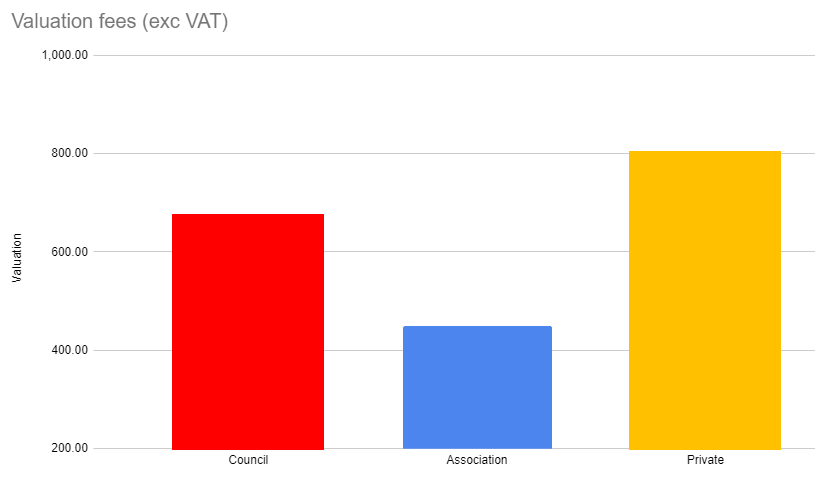Freeholder's Fees - Lease Extensions
Under current law, leaseholders are responsible for paying a freeholders costs for lease extensions of residential flats. Section 60 of the LRHUDA 1993 Act enforces this for statutory lease extensions, but you can also expect the same to apply to informal extensions.
The draft Leasehold and Freehold Reform Bill has introduced the possibility of freeholders having to meet their own costs (except for certain circumstances), although the government impact assessment has indicated that changes may not come into force until 2025 to 2028, if passed by parliament.
What are the expected Fees of the Freeholder?
We have looked at freeholder's fees encountered by the author in 2023 and split these for each category of freeholder:
- Councils / local authorities
- Housing Associations / Charitiable House Trusts
- Private Landlords
For fairness, VAT has been excluded, given that council's are exempt.

The data shows a clear trend for each category, with the cheapest being Housing Associations, whilst private landlord's incur signifantly higher costs for both valuation and legal fees.
Now let's look deeper into the data, splitting the freeholder's costs between legal, valuation and admin fees:

The bar chart below illustrates the differences in freeholder's valuation fees:

Housing Associations are charging substantially less than private landlords on valuation fees.
Why the differences in freeholder's fees?
There are possible explanations for these differences in fees:
1. Flats under council or housing association ownership benefit from economies of scale, as there are generally 30-200 flats in each freehold title, with each flat being very similar in value.
2. Solicitors working for private landlords have more extensive checks of the title documentation. Council and association solicitors have most likely dealt with a lease extension previously within the same building.
3. Councils and housing associations beenfit from economies of scale, sharing large office space, usually not paying rent and less client contact.


